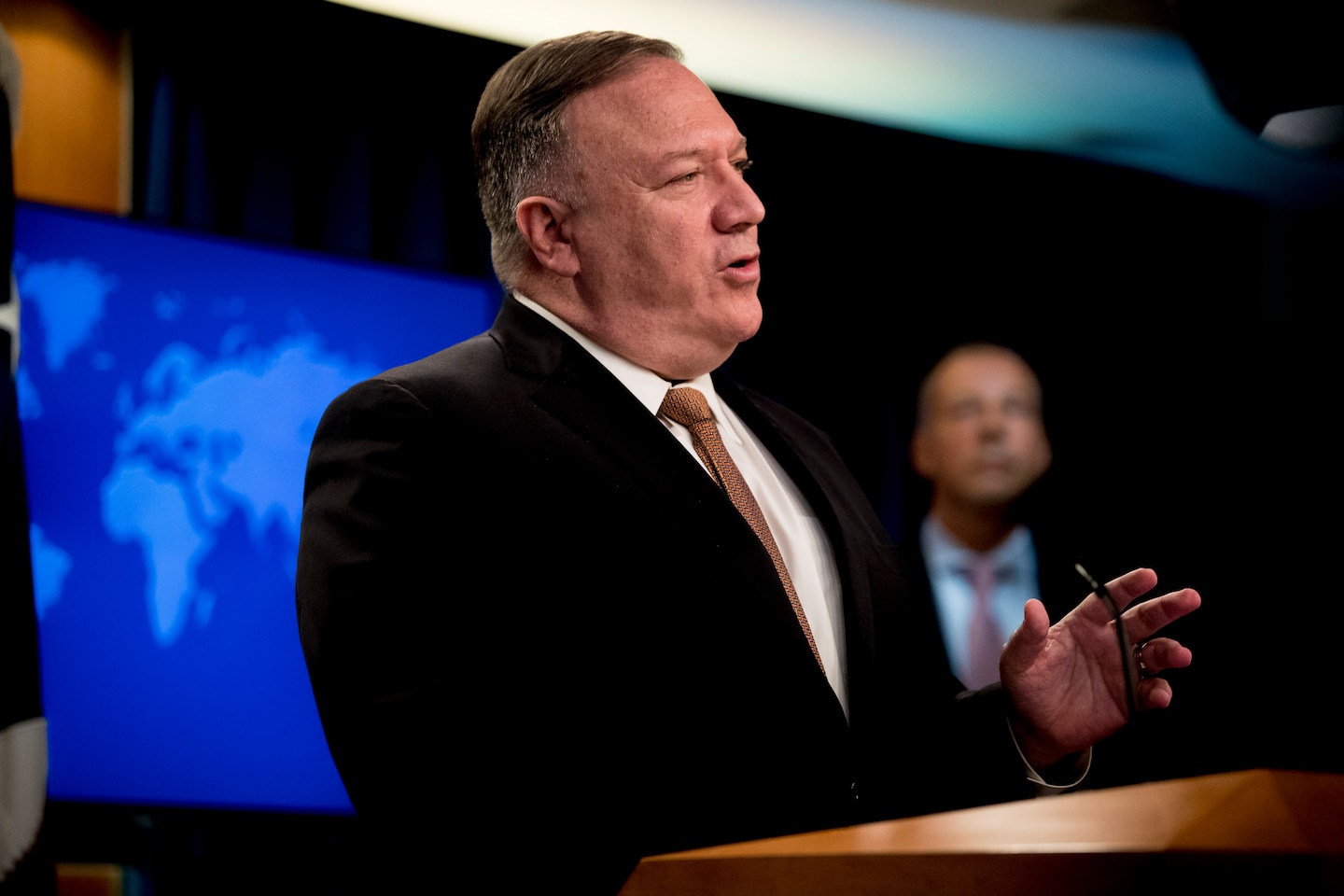The U.S. and Russia have a rare opportunity to work together on a peace deal

What complicates this difficult diplomacy further is that it involves Turkey, the pugnacious regional power that has become a headache for both Moscow and Washington. Turkey has threatened to intervene in the Armenia-Azerbaijan battle and has been fulminating against the Armenian emigre community in Lebanon, to boot. To Armenians, that carries chilling echoes of the 1915 genocide under Ottoman rule, which Turkey has never acknowledged.
Russian and U.S. diplomats responded in similar language to the outbreak of shooting near Tavush on the Armenia-Azerbaijan border July 12. In fighting over the next several days, 16 Azeris, including a general, and four Armenians were killed, according to the Minsk Group.
Secretary of State Mike Pompeo called for negotiation through the Minsk Group leadership, presumably with Russian cooperation, in prepared remarks to reporters on July 15.
“The United States is deeply concerned about the recent deadly violence along the Armenia-Azerbaijan international border,” Pompeo said. “We urge the sides to de-escalate immediately and reestablish a meaningful dialogue and a ceasefire to resume substantive negotiations with the Minsk Group as co-chairs.”
The Russian Foreign Ministry had issued a similar statement on July 13, expressing “serious concern” about the “escalation” of hostilities, calling for a cease-fire and offering to help ease tensions. On July 15, the Minsk Group leadership — including France, the third co-chair — called for “substantive negotiations.”
For the past week, a shaky undeclared truce has prevailed along the border, with reports of occasional skirmishes and thrusts. There’s been a cooling, too, of incendiary rhetoric from Baku about targeting an Armenian nuclear power plant, and from Ankara about sending Turkish troops to fight alongside their Azeri Turkic cousins. But it’s a fragile and probably unsustainable lull, and U.N. Secretary General António Guterres this week urged “maximum restraint” to avoid another blowup.
The United States has an unwieldy set of conflicting goals in the region, which means that any diplomatic engagement would be a tricky three-cushion shot. First, U.S. relations with Russia have plummeted nearly to Cold War levels. President Trump has been saying since 2016 that he would like to improve relations. But any direct opening now to Russia would be controversial, and Trump is unlikely to attempt it if the political cost is too high. But the Minsk Group route might be a politically acceptable cutout.
The wild card in this deck is Turkey. President Recep Tayyip Erdogan is bidding anew for a role as a leader in the Muslim world, projecting Turkish military power directly through interventions in Syria, Iraq and Libya. His neo-Ottoman strategy, as it’s often described, is also evident in symbolic actions, such as his call to transform the Hagia Sophia museum, a relic of Byzantine Christianity, into a mosque, and in Turkish agitation against Armenia. Erdogan has also aggressively championed Turkish oil-drilling rights in the Aegean Sea, angering Greece.
Erdogan has flirted as well with Russian President Vladimir Putin, a dance that has alternated between warm embraces and stepping hard on each other’s toes. Erdogan defied Washington by purchasing Russia’s S-400 antiaircraft defense system last year; the Trump administration retaliated by ejecting Turkey from the F-35 advanced fighter jet deal. The fallout continued this week, as the U.S. Air Force announced that it would buy the jets that had been built for the Turkish Air Force. Erdogan may have enjoyed defying the United States, but his generals wanted the F-35.
Meanwhile, Turkey has been giving Russia fits in Syria and Libya, where its proxies are fighting against Moscow’s proxies.
How can the United States avoid making this messy situation even worse? As tempting at it might be to encourage more Russian-Turkish feuding, a better idea would be a diplomatic engagement through the Minsk Group co-chair framework. It’s the one significant diplomatic arena where Moscow and Washington still actively collaborate. Armenian and Azerbaijani officials seem eager for such great-power mediation.
Letting this small war fester until it becomes a big one, with the danger of thousands of Armenian and Azerbaijani deaths, would be a mistake. Trying to settle such feuds is often a thankless task, but in this case it’s worth a try.
Read more:






